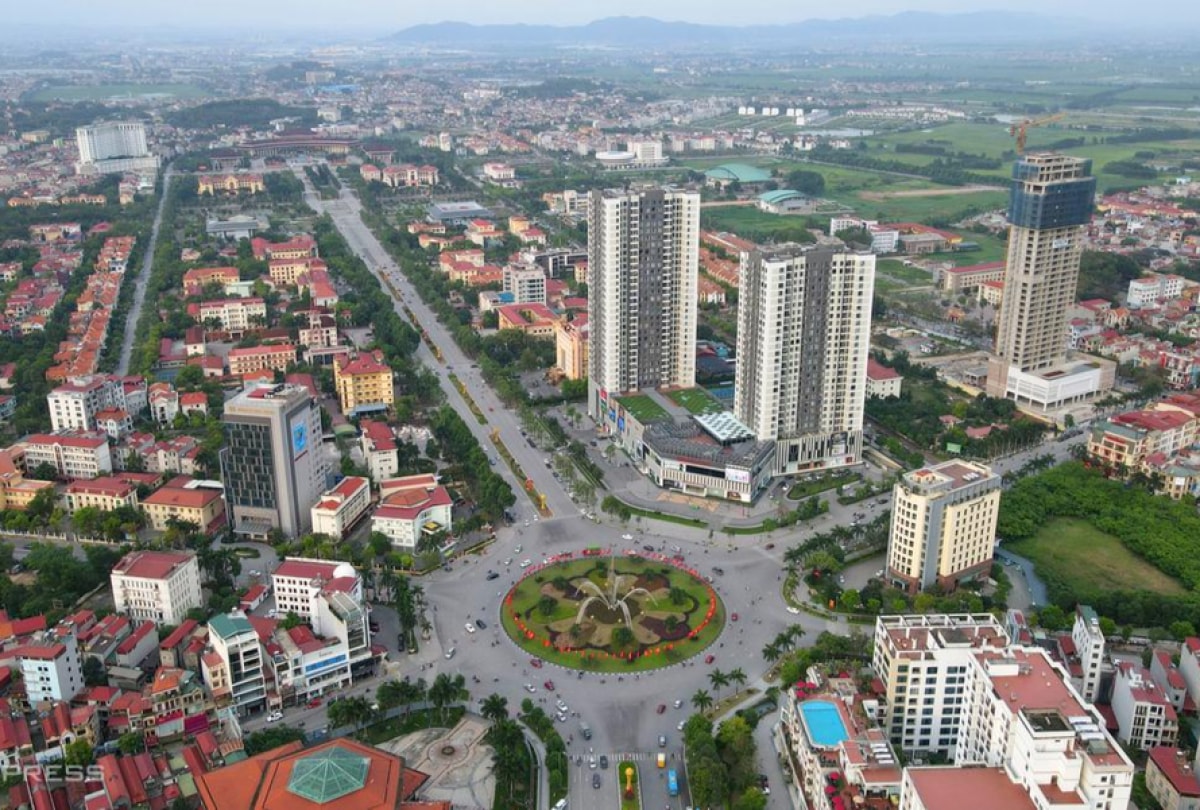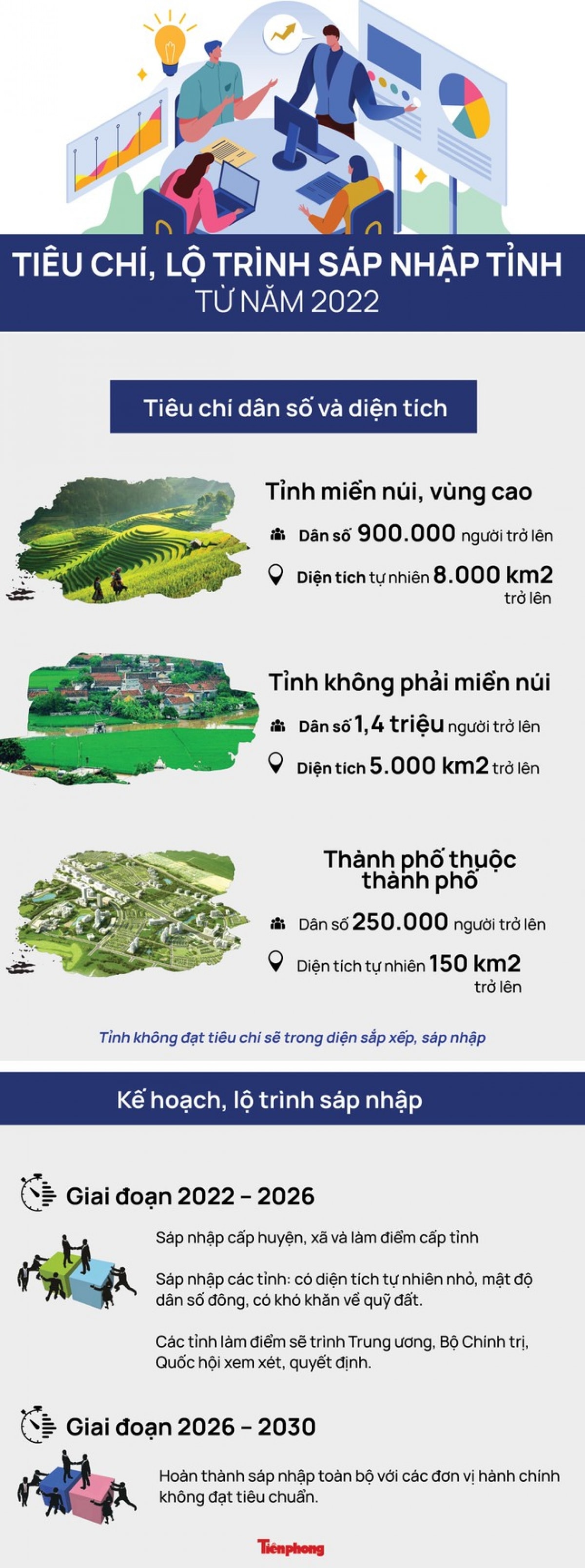Proposal to arrange and merge provinces with small population and area
Some provinces with small natural areas, high population density, and difficulties in land funds will be selected for arrangement and merger in the coming time.
The draft on provincial-level administrative units is being built. For mountainous and highland provinces, the conditions for not having to merge are: a population of 900,000 people and a natural area of 8,000 km2.2or more.
For non-mountainous provinces: have a population of 1.4 million people and a natural area of 5,000 km2 or more.
 |
| Bac Ninh is the province with the smallest area of only 822.7 km2. Illustration |
This time, the Ministry of Home Affairs proposed to amend in the direction: mountainous provinces, districts, communes, and highland areas with natural areas larger than 150% or more than the general standard level will have their population size reduced by 25% compared to the regulations. This amendment is to suit the characteristics of mountainous and highland administrative units with large natural areas, complex terrain, and small populations.
According to the 2019 Population Census results of the General Statistics Office, the top 10 provinces with the smallest population are: Bac Kan, Lai Chau, Cao Bang, Kon Tum, Ninh Thuan, Dien Bien, Dak Nong, Quang Tri, Lao Cai, Hau Giang. Among these 10 provinces, the population only fluctuates from 314,000 - 733,000 people.
Notably, the 5 least populated provinces are all in the Northern mountainous region. Of these, Bac Kan is the least populated province, with only 314,000 people. Second is Lai Chau, a large province with a population of just over 460,000 people. Third is Cao Bang with over 530,000 people.
There are two provinces in the Central Highlands with small populations: Kon Tum with 540,000 people and Dak Nong with 622,000 people.
In terms of natural area, the 10 provinces with the smallest areas in the country are: Bac Ninh, Ha Nam, Hung Yen, Vinh Phuc, Da Nang, Ninh Binh, Can Tho, Vinh Long, Hai Phong, Thai Binh.
Bac Ninh is the province with the smallest area of only 822.7 km2This province is adjacent to Bac Giang and Bac Ninh City is located 30 km from the center of Hanoi. Although the area is the smallest in the country, Bac Ninh has a relatively large population, with about 1.37 million people.
In second place is Ha Nam province with 860.9km2in the Red River Delta, bordering the capital Hanoi, the provinces of Nam Dinh and Thai Binh.
The next smallest province in area is Hung Yen with 930.2 km2, bordering Bac Ninh, Hai Duong, Hanoi.
With an area of 1,235.2 km2, Vinh Phuc is the fourth smallest province in Vietnam. Vinh Phuc borders Thai Nguyen province, Phu Tho province and Hanoi city.
Da Nang is a centrally-governed city, but with an area of only 1,284.9 km2, ranked fifth among the provinces and cities with the smallest area. Da Nang borders Thua Thien Hue and Quang Nam.
The Ministry of Home Affairs said it will select and arrange a number of provinces with small natural areas, high population density, difficulties in land funds for development space or according to the requirements of national defense and security tasks. For pilot provinces, it will submit to the Central Committee, the Politburo, and the National Assembly for specific consideration of each case.
According to the Ministry of Home Affairs, when the amended and supplemented resolution is passed, from 2022 to 2026, the arrangement of district- and commune-level administrative units will be implemented and a "pioneer" arrangement of a number of provincial-level administrative units that have not met 50% of one of the two standards (the remaining standard has not met 100%) on natural area and population size according to regulations will be carried out.
According to the roadmap, by 2030, the arrangement of administrative units at all levels will be completed in accordance with revised and supplemented standards and in accordance with the overall planning of administrative units of the whole country.



